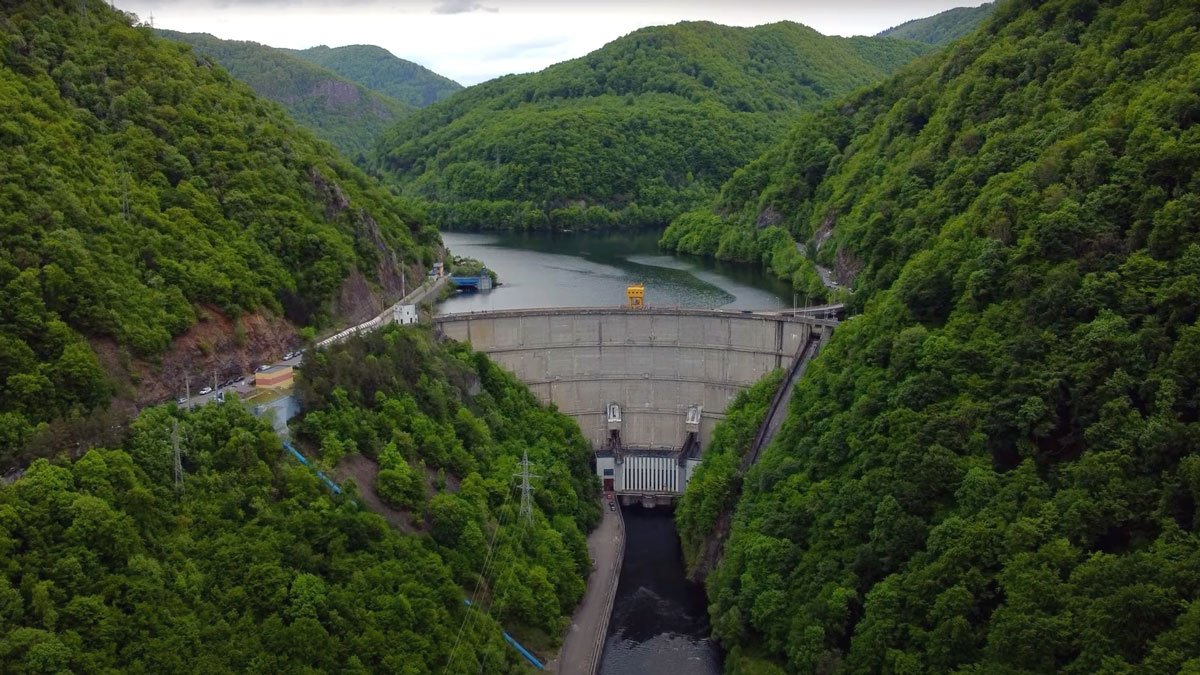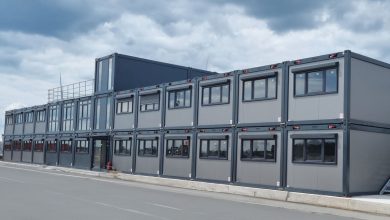Tarnita-Lapustesti Hydropower Plant: Hurdles, Upsides and Prospects
Construction of the Tarnita-Lapustesti pumped storage hydropower plant in Cluj County, one of the most important projects for the Romanian energy system, can substantially contribute to the security of the energy system, fair prices and, last but not least, clean energy production and large-scale storage.
Having been taken off the back burner by Energy Minister Sebastian Burduja, who said it was his pet project, the construction of this project has started with another setback. The tender organized by SAPE (Societatea de Administrare a Participatiilor in Energie SA) for a new feasibility study (FS) did not arouse the interest of companies, and after a year the procedure was cancelled, being resumed earlier this year. The energy minister is now announcing a new approach to the project, based on collaboration with Japan’s Itochu and France’s EDF.
The companies Itochu from Japan and EDF from France are interested in the Tarnita-Lapustesti pumped storage hydropower plant project and are willing to carry out the feasibility study at their own expense, following to continue the design and construction of the plant, Energy Minister Sebastian Burduja announced. “Just these days we have continued discussions with our strategic partners from Japan and France, the Itochu-EDF consortium, two global energy giants. EDF is Europe’s largest utility company, producing over 16% of the European Union’s electricity. EDF is the world’s largest operator of nuclear assets, with around 180,000 employees. Itochu, the Japanese giant, has total revenues of almost $90 billion, i.e. 28% of Romania’s GDP. The two large companies are interested in the project (Tarnita-Lapustesti, editor’s note) and are willing to realize the FS on their own money, and then to carry out the design and execution of the power plant. A large-scale project needs serious, stable, reliable and trustworthy partners who have proven that they know and can implement large projects. As Tarnita-Lapustesti is for our country.”
Developments in awarding the feasibility study
Sebastian Burduja said that, at the beginning of his mandate, he took the Tarnita-Lapustesti hydropower plant project out of the drawer and mandated the SAPE management to start the tender for the feasibility study.
The Energy Minister stressed, however, that no progress has been made after a year. “SAPE is the Romanian state-owned company that manages the energy holdings and to which I have given all my trust and support in completing the first stage of the project, namely the award of the FS. One year on, I see that no progress has been made and that we are still at the same point, with SAPE failing to close the tender for the award of the FS. I wouldn’t give up in a million years. This project will see the light of day. With or without me as minister. Because Romania and Romania’s energy have no more time to wait, and ministerial mandates are not about one person or another, but about the future of this country and future generations,” Sebastian Burduja added.
In the summer of this year, SAPE announced that two companies had submitted bids in the tender procedure for the ‘Feasibility study and technical-economic documentation for the investment objective of the Tarnita-Lapustesti pumped storage hydropower plant (CHEAP)’.
Advantages and functions of the hydropower plant
According to SAPE, the opportunity and necessity of realization of the Tarnita-Lapustesti pumped storage hydropower plant (CHEAP) project is based on the following advantages and functions provided for the national energy system by a pumped storage power plant:
- Increasing the safety of the National Power System in the context of operation within the Union for the Co-ordination of Transmission of Electricity (UCTE)
- Transfer of electricity from off-peak load to peak load
- Electricity market arbitrage
- Short-term back-up
- Fast and slow tertiary setting reserve
- Frequency-power regulation
- Provision of reactive reserve and voltage regulation in the National Power System
- Exchange via interconnection within UCTE
- National Power System black start capability (the ability to restore grid interconnections in the event of a blackout)
- Implementation and management of the National Power System of intermittent renewable sources of electricity ensuring optimal conditions for the installation of more than 4000 MW in wind power plants.
The feasibility study will be contracted to establish the solutions for the realization of a pumped storage hydropower plant with a capacity of 500 – 1000 MW. The feasibility study will comply with the framework content established by GD 907/2016 and will contain the feasible solutions for the construction of the power plant, the cost-benefit analysis carried out for the presented solutions, elaborated under the existing legislative and technical-economic conditions, the urban planning certificate, the compliant permits for the provision of utilities, as well as specific permits, agreements and studies, as appropriate, depending on the specifics of the investment objective, including the one for the connection to the power transmission grid and the environmental permit.
Clarification of the evaluation of tenders submitted for the feasibility study
SAPE has recently issued a series of clarifications on the status of the tender for the selection of the company that will carry out the feasibility study.
“Currently, the evaluation committee for the bids submitted for the ‘Feasibility study and technical-economic documentation related to the investment objective of the Tarnita-Lapustesti pumped storage hydropower plant (CHEAP)’ has not finalized the analysis and, consequently, a report on the result of the evaluation is not published in the collaborative information system for a high-performance public procurement environment (SICAP). We recall that the first tender procedure for the realization of the feasibility study of the Tarnita hydropower plant, for which 16 bidders initially expressed their interest, was automatically cancelled at the end of last year by SICAP. This is because, according to a notice posted on the relevant platform, at the deadline for submission of bids, none of the registered bidders encrypted their financial offer and/or did not respond to all the electronic evaluation factors, as applicable.” In compliance with the regulations in force, SAPE reopened the tender in mid-January 2024, adapting the specifications to make them more accessible and flexible. After several postponement requests from potential bidders, two bids for the feasibility study were submitted by the deadline in mid-June. The evaluation committee, which includes specialists in public procurement, law and economics from SAPE, as well as hydropower experts, specially hired by the company for this tender, analyses the submitted bids with the rigor required by law and the importance of the investment objective, given the complexity of the project and the technical documentation. Until this analysis is completed, the procedure report, which is drawn up by the evaluation committee, cannot be published on SICAP. SAPE fully complies with the legislation in force. SAPE strongly supports the Tarnita-Lapustesti hydropower project, considering it a necessity and a strategic opportunity for the development of the Romanian energy sector, as well as for the company. This project has the potential to make a significant contribution to the energy security of both the country and the region, as well as to the sustainability of our resources. As soon as the evaluation committee finalizes the analysis, we will officially communicate the result and the final decision,” SAPE said.
Bulgaria, two more pumped storage hydropower plants planned
Bulgaria already has a pumped storage hydropower plant, the Chaira hydropower plant. It is also preparing to build two more hydropower plants. The Chaira hydropower plant in south-west Bulgaria is the largest pumped storage hydropower plant in the region. It plays a crucial role in securing and balancing Bulgaria’s power grid. On the other hand, the European Investment Bank (EIB) announced this summer that it would provide assistance to the Bulgarian state electricity company Natsionalna Elektricheska Kompania EAD (NEK) to prepare the construction of two large pumped storage hydropower plants in the south-west of the country. The two new renewable energy sources, called Batak and Dospat, will each add about 800 MW of generation capacity and expand storage capacity, strengthening electricity supply in Bulgaria and the European Union, NEK and the EIB said in a joint press release. Under the agreement, the EIB Advisory will examine the technical feasibility and economic viability of the two projects and assess their benefits and risks. This will help NEK make decisions on the implementation of the two projects. NEK and the EIB said that an estimated total cost of each project is around €900 million, and the plan is to start production by 2032.







